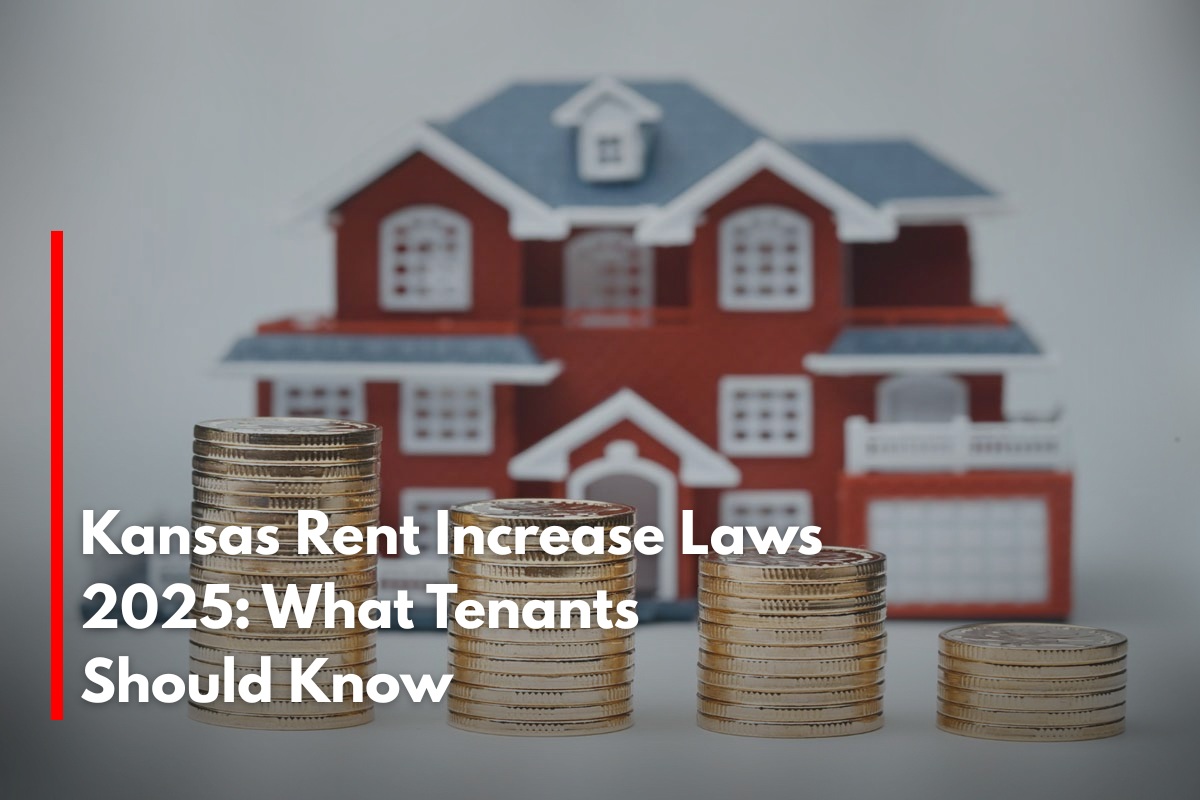Kansas remains a landlord-friendly state in 2025—there is no statewide rent control, so landlords have broad discretion over rent increases. However, important notice requirements and anti-retaliation protections exist to balance landlord flexibility with tenant rights.
No Statewide Rent Control or Caps
Unlimited Increases: Kansas law does not place any maximum limit on how much a landlord may raise your rent. There are no statutory caps on percentage or dollar-amount increases, regardless of whether you rent an apartment, house, or other residential unit.
Market-Driven: Increases are generally limited by what the local rental market can bear. Excessive hikes often risk vacancies, so most landlords keep increases in the 3–10% range, though higher or lower is legally permitted.
Required Notice Periods
Written Notice Is Mandatory: Landlords must give written notice before increasing rent. Verbal notice is not sufficient.
Month-to-Month Leases: A standard 30-day notice is required before a rent increase may take effect. This gives tenants time to budget or find alternative housing if needed.
Fixed-Term Leases: Rent may not be raised during the fixed lease term (e.g., for a 12-month lease), unless the contract explicitly allows for increases. Otherwise, the rent can only be raised at renewal or start of a new term, with notice provided as specified in your lease—often 30 or 60 days.
Kansas Statute Update: Recent law recognizes a 60-day written notice requirement for any rent increase, which cannot take effect until the end of the current lease or renewal period. Always read your lease in case it stipulates a longer notice period.
| Lease Type | Required Notice for Rent Increase |
|---|---|
| Month-to-Month | 30 days (some sources now state 60 days) |
| Fixed-Term | Not during term; at renewal with notice |
Retaliation and Discrimination Protections
Anti-Retaliation: Landlords may not raise rent in retaliation if you’ve reported housing code violations, exercised your legal rights, or joined a tenants’ union. If a landlord increases rent as retaliation, you may have legal defenses.
Non-Discrimination: Increases may not target tenants based on race, gender, disability, or other protected characteristics.
Local Ordinances and Exceptions
No Citywide Rent Control: No major Kansas municipalities have implemented their own rent controls as of 2025, but always check local ordinances just in case.
Lease Provisions Overrule Defaults: If your lease specifies a notice period or conditions for increases, those terms generally take precedence—unless they provide less notice than state law.
What Should Tenants Do?
Review Your Lease: Carefully read your lease for mention of rent increases and notice periods.
Document Notices: Keep all written communications regarding rent increases.
Negotiate or Seek Alternatives: If you believe an increase is excessive, try to negotiate or consider moving. If you suspect the increase is retaliatory or discriminatory, contact Kansas Legal Services or a housing advocate for help.
Kansas landlords are free to raise rent as much as they want, as long as they provide required written notice and do not act out of retaliation or discrimination. Tenants should stay alert to market trends, know their lease terms, and be aware of their rights.
Sources
[1] https://www.hemlane.com/resources/kansas-rent-control-laws/
[2] https://www.hemlane.com/resources/kansas-tenant-landlord-law/
[3] https://www.sixfifty.com/pro-bono/blog/renters-rights-in-kansas/
[4] https://www.leaserunner.com/laws/kansas-rent-increase-laws
[5] https://www.kslegislature.gov/li/b2025_26/statute/058_000_0000_chapter/058_025_0000_article/058_025_0109_section/058_025_0109_k/











